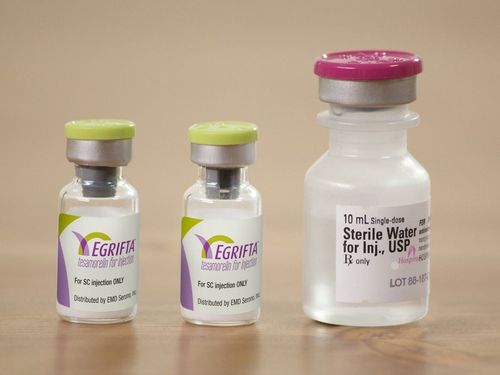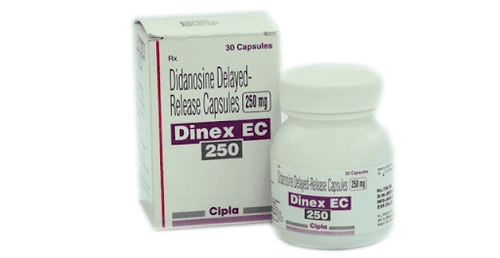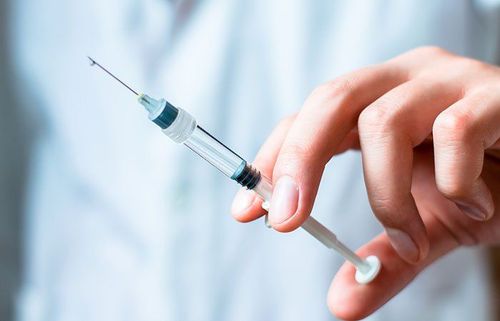This is an automatically translated article.
Crixivan is an antiretroviral drug commonly indicated for the treatment of immunocompromised HIV patients. So what is the mechanism of action and precautions when using the drug?
1. What is Crixivan?
What is Crixivan? Crixivan's main ingredient is Indinavir - this is a selective inhibitor of the protease enzyme of the virus that causes immunodeficiency syndrome in HIV-infected patients. Indinavir inhibits the protease required for the cleavage of polypeptide precursors to produce structural proteins and essential viral enzymes, preventing viral maturation. Crixivan is rapidly absorbed from the gastrointestinal tract, is approximately 60% bound to plasma proteins, and reaches peak plasma concentrations after 5 to 20 minutes. The drug is metabolised in the liver to the active substances and finally excreted unchanged in the urine. Food can reduce the absorption of the drug, so it can be used in light meals such as bread, cereal, non-cream milk, ... to both not reduce the effectiveness of the drug and not affect the medicine. affect the stomach.
2. Indications of the drug Crixivan
Crixivan is indicated for the treatment of the following pathologies
Preventing viral replication in HIV-infected patients. In combination with antiretroviral agents for the treatment of infections secondary to HIV infection.
3. Contraindications of the drug Crixivan
Do not use Crixivan in the following cases
Allergy to Indinavir or any other ingredient of the drug. The patient is being treated with drugs such as alfuzosin, amiodarone, cisaprid, is being treated for hypertension, antipsychotics, lipid-lowering drugs, tranquilizers, etc. There is no indication to use Crixivan. The drug is metabolized by the liver, so patients with cirrhosis and impaired liver function should not take the drug. Patients with renal failure, severe kidney stones. Diabetic patients. Patients with bleeding disorders. Children under 18 years of age are not indicated to use Crixivan.
4. Notes when using Crixivan
When using Crixivan, patients should pay attention to the following issues:
Monitor liver and kidney function before and during the drug use in patients with impaired liver and kidney function. Check your blood count regularly throughout the course of medication. It has not been proven that the drug crosses the placenta and the safety of the drug for the fetus, so pregnant women need to consider the benefits when using Crixivan. People with HIV are advised not to breastfeed, as the virus can pass through breast milk. Therefore, the drug can be used in subjects who are not breast-feeding. Using the drug Crixivan prevents the replication of the virus that weakens the body's immunity causing secondary infections, the drug does not prevent the transmission of HIV to other people. Therefore, do not have unprotected sex, do not share personal items such as razors, toothbrushes, ... to prevent infection.
5. Drug interactions of the drug Crixivan
Some drug interactions have been reported to change the bioavailability of Crixivan, increase hepatotoxicity, increase side effects and even increase the risk of death when used in combination with the following drugs
Quetiapine. Rifampin . Cardiovascular drugs, antihypertensive drugs such as amlodipine, felodipine, nifedipine, nicardipine, quinidine. Statin cholesterol-lowering drugs such as atorvastatin, rosuvastatin,... Erectile dysfunction drugs such as Viagra, tadalafil, vardenafil,... Other antiviral drugs such as delavirdine, saquinavir, ritonavir, nelfinavir, atazanavir, ... Anticonvulsant drugs such as carbamazepine, phenobarbital, phenytoin,... Steroid drugs such as dexamethasone, prednisolone,...
6. Dosage and how to use Crixivan
How to use
Take Crixivan whole tablet with 1 full glass of water on an empty stomach or 1 hour after eating. Take the medicine at the same times each day. Drink 1.5 to 2 liters of water slowly per day to prevent kidney stone formation while taking this medicine. Dosage
Usual dose: 800mg/time x 3 times/day. Patients with mild to moderate hepatic impairment: 600mg/time x 3 times/day. Patients with kidney stones who are being treated or in the acute stage appear to have renal colic, hydronephrosis, ... can stop the drug for 1-3 days or consider stopping the drug.
7. Crixivan side effects
Some unwanted effects may be encountered when using Crixivan medicine
Allergic reactions, urticaria, swelling of the face and lips, difficulty breathing, swelling of the tongue and throat. Kidney stones, lower flank pain, back pain, dysuria, painful urination, dark urine, hematuria. Abnormal blood cell lines, anemia, pale skin, fever. Fatigue, weakness, drowsiness, confusion, weight loss. Increased blood sugar, increased symptoms of diabetics such as thirst, dry throat, frequent urination, hunger. Increased liver enzymes, increased blood bilirubin. Smelly breath. Dry skin. Blurred eyes. Nausea, right upper quadrant abdominal pain, skin itching, loss of appetite, jaundice, yellow eyes. Muscle pain or weakness. Increased risk of some infectious diseases because Crixivan changes the activity of the immune system, manifesting as fever, night sweats, swollen lymph nodes, mouth sores, diarrhea, gastritis,... Chest pain, dry cough , shortness of breath. Acne, sores on the genitals and anus. Heart rhythm disturbances. Menstrual disorders, menorrhagia, amenorrhea, impotence, decreased libido. In summary, Crixivan is an antiretroviral drug for the treatment of HIV-infected patients. Drugs that block viral replication reduce the effects of immunodeficiency, but do not prevent infection. Crixivan must be prescribed by a specialist doctor, do not arbitrarily use or increase or decrease the dose not prescribed by medical staff.
Follow Vinmec International General Hospital website to get more health, nutrition and beauty information to protect the health of yourself and your loved ones in your family.













